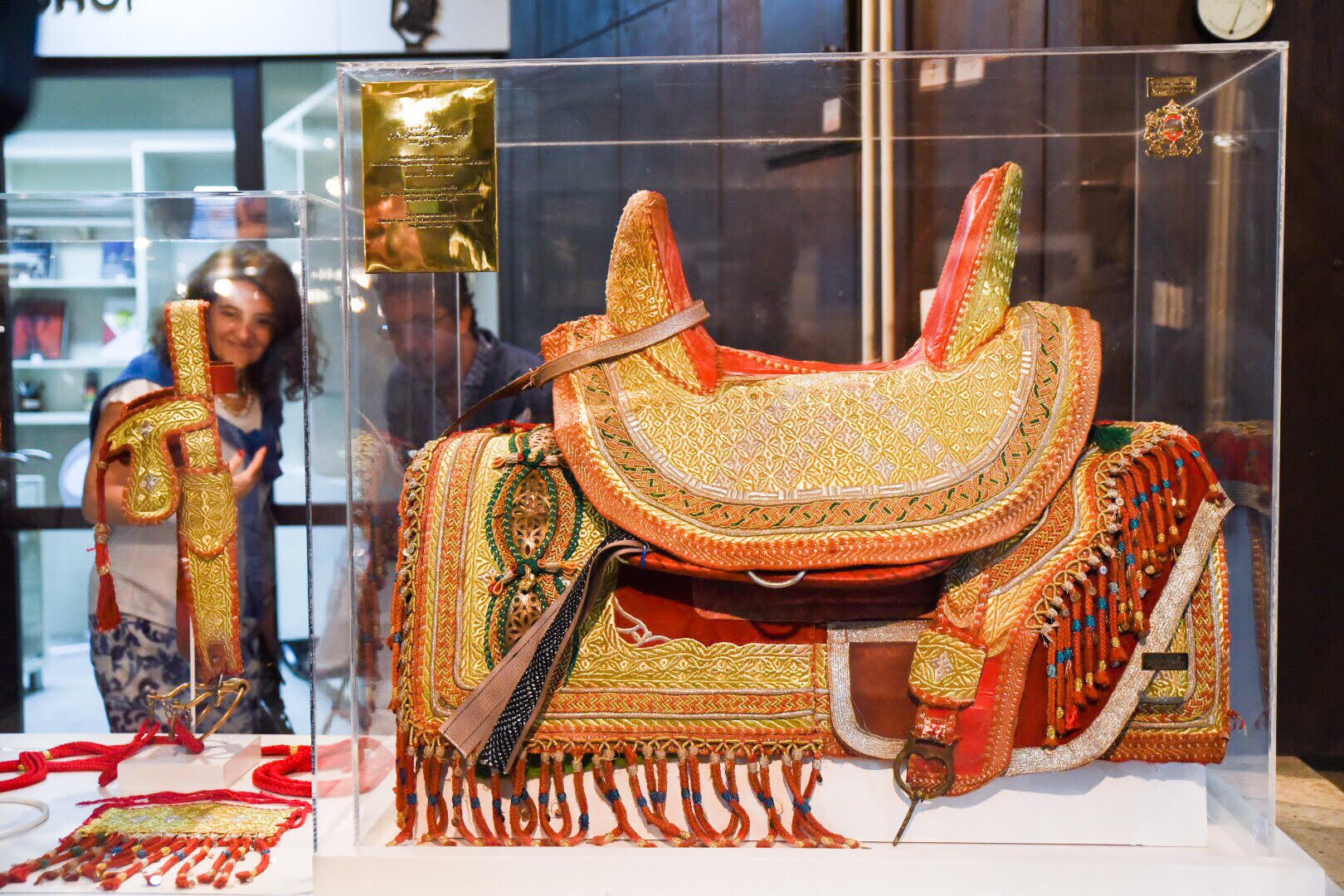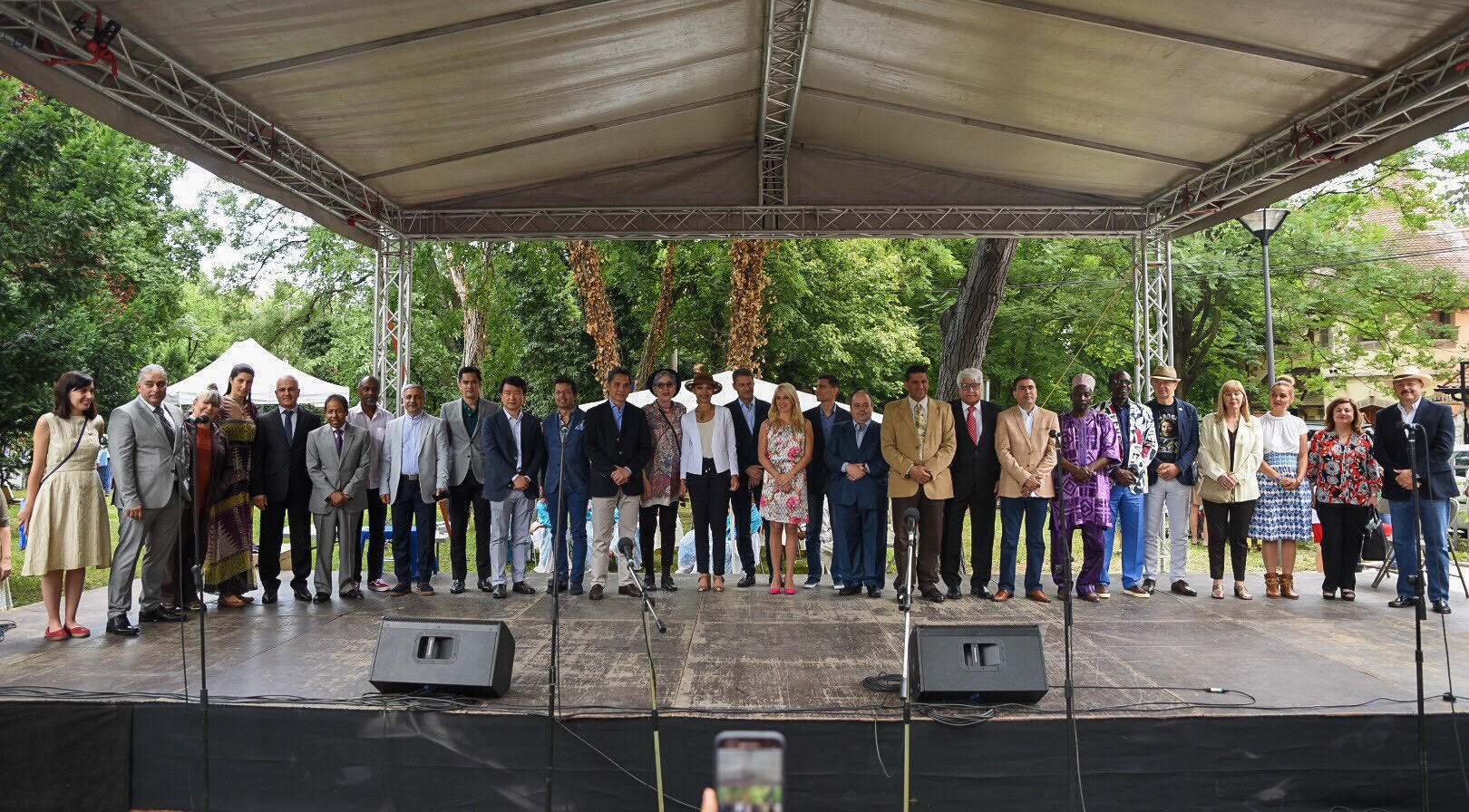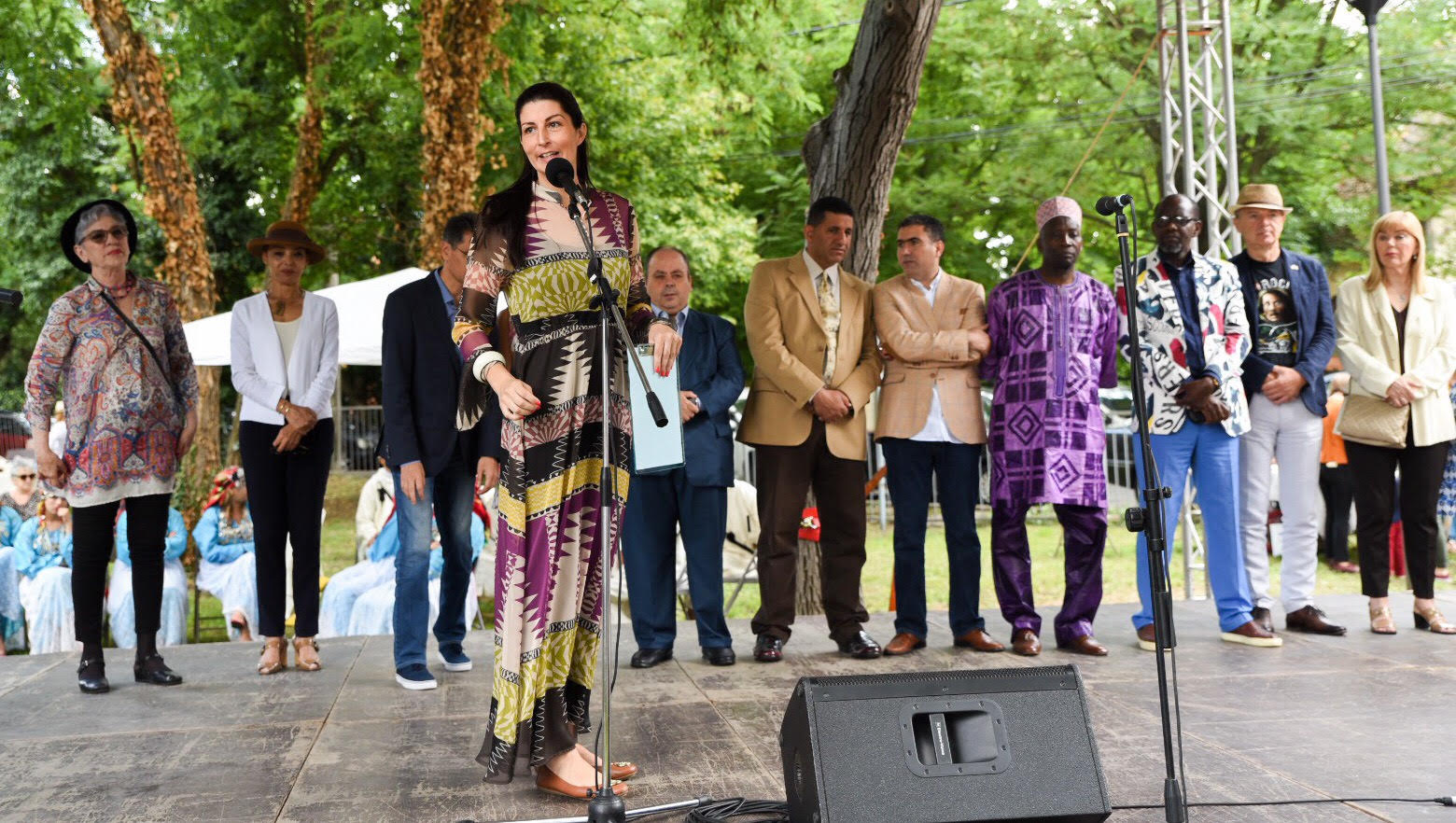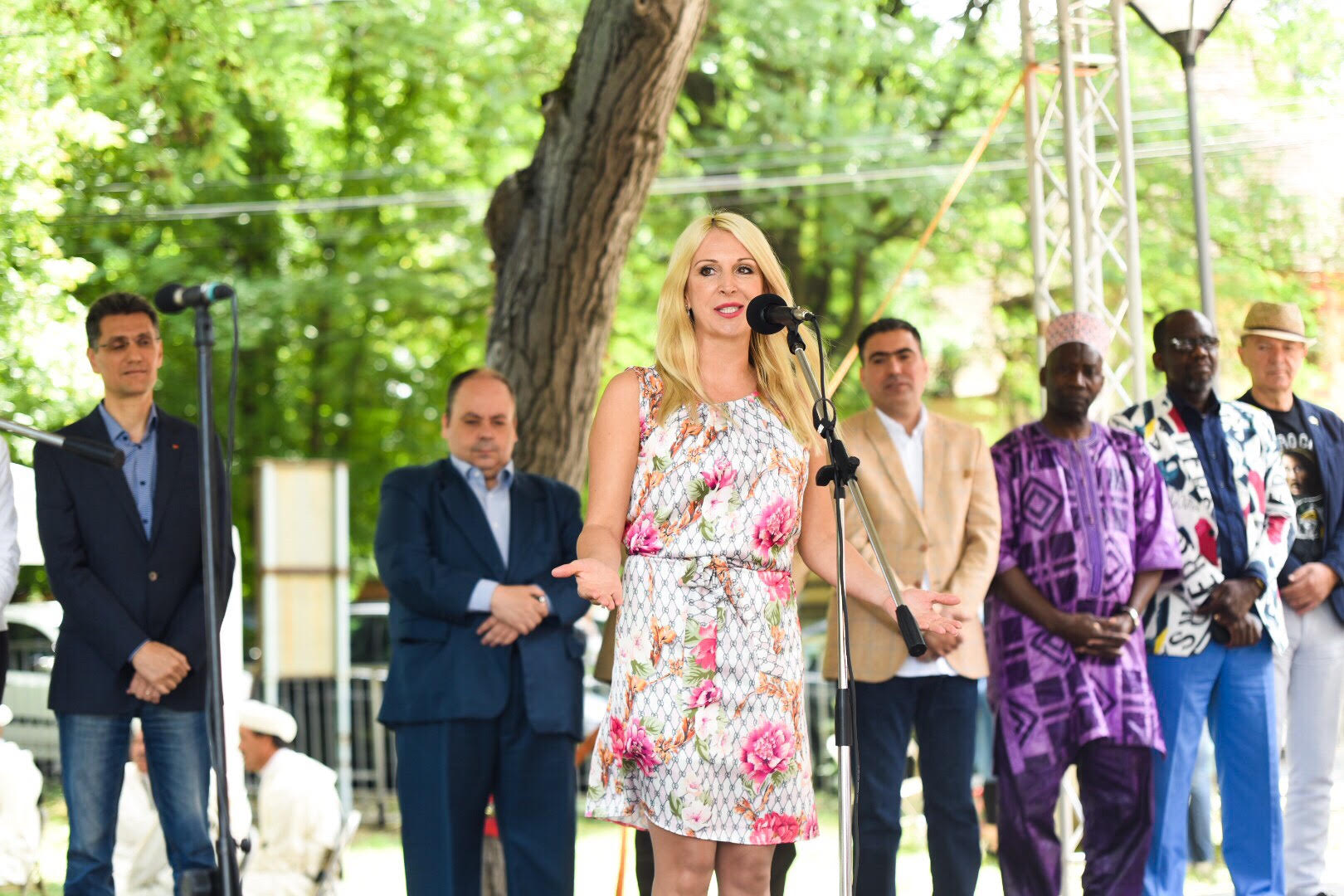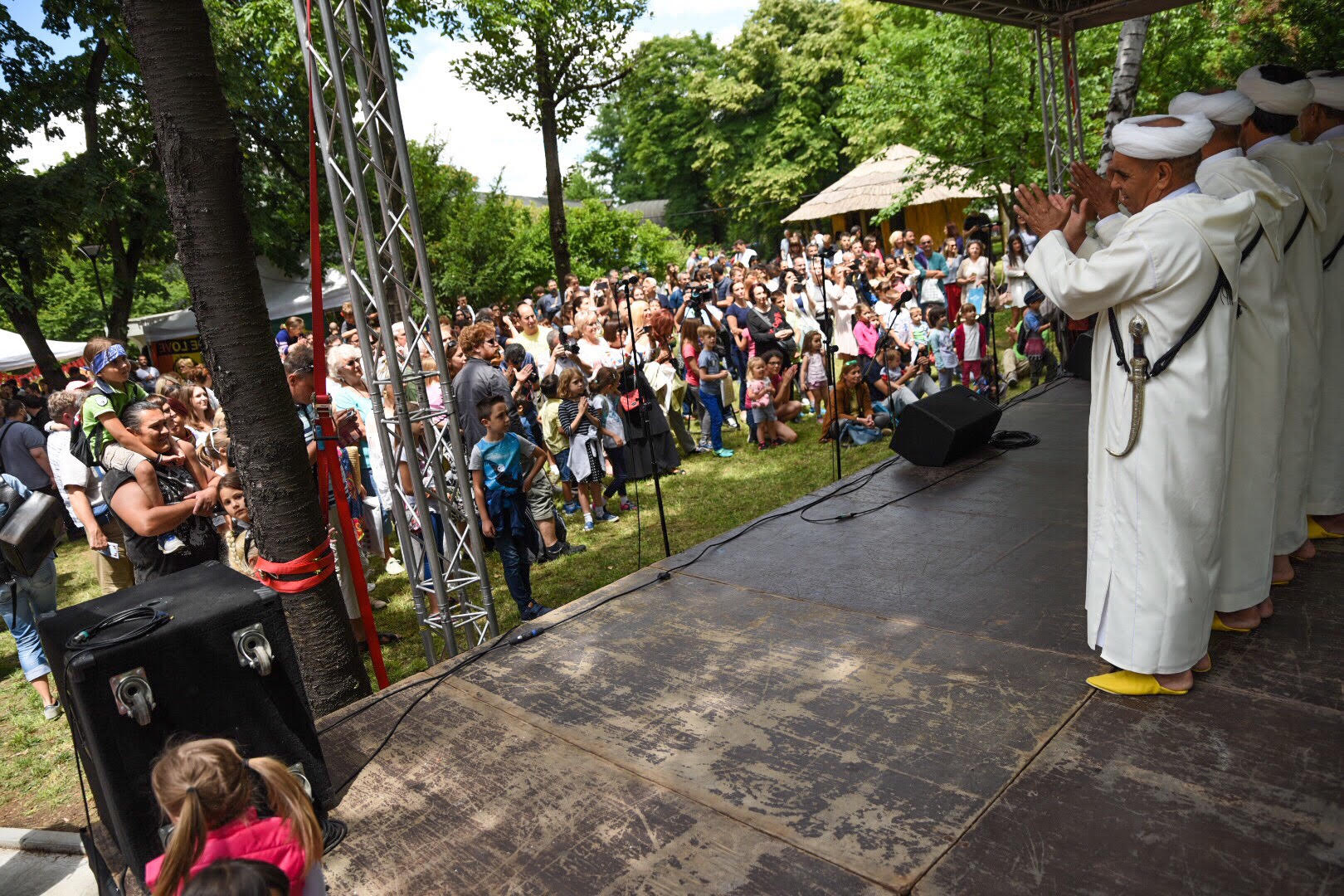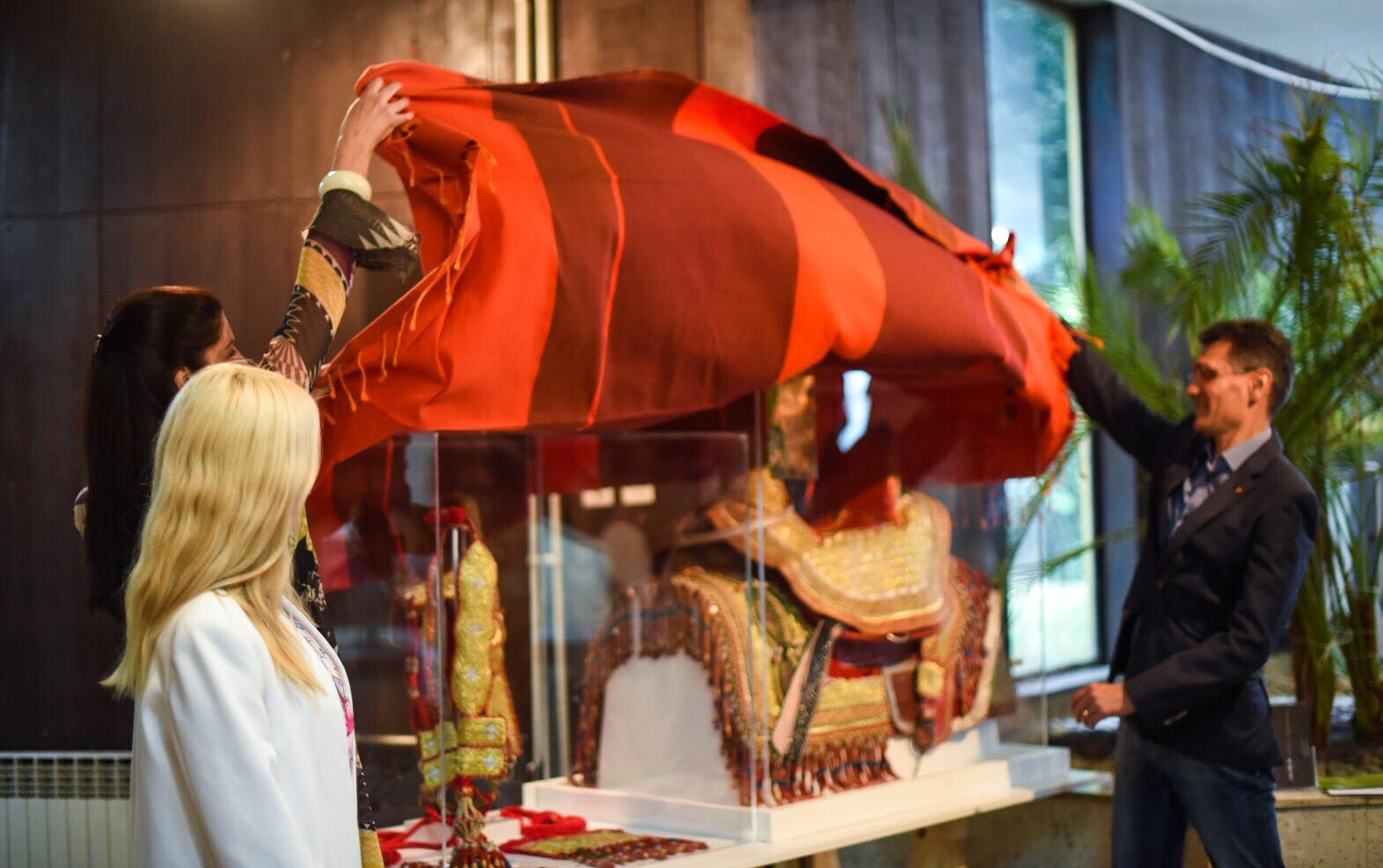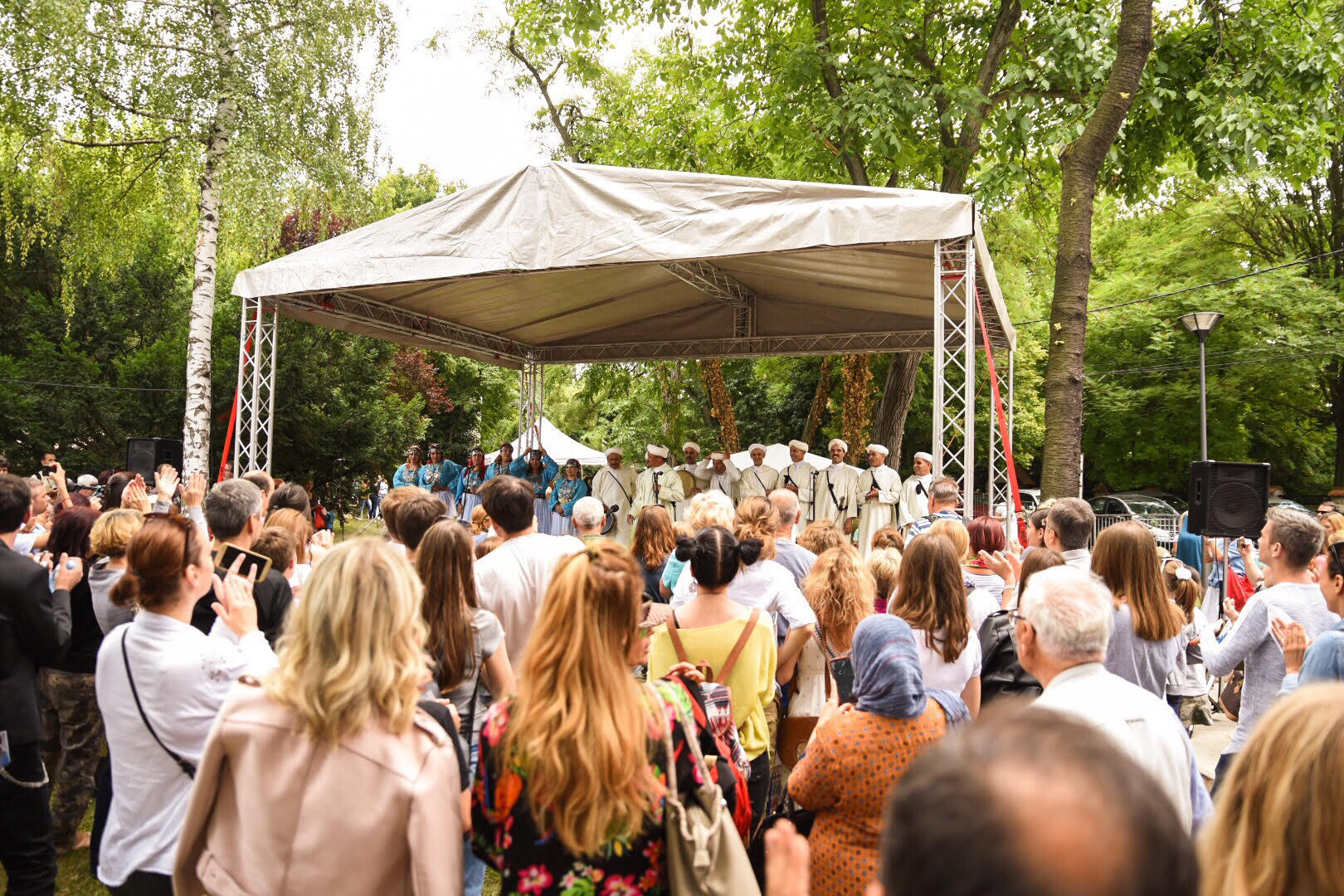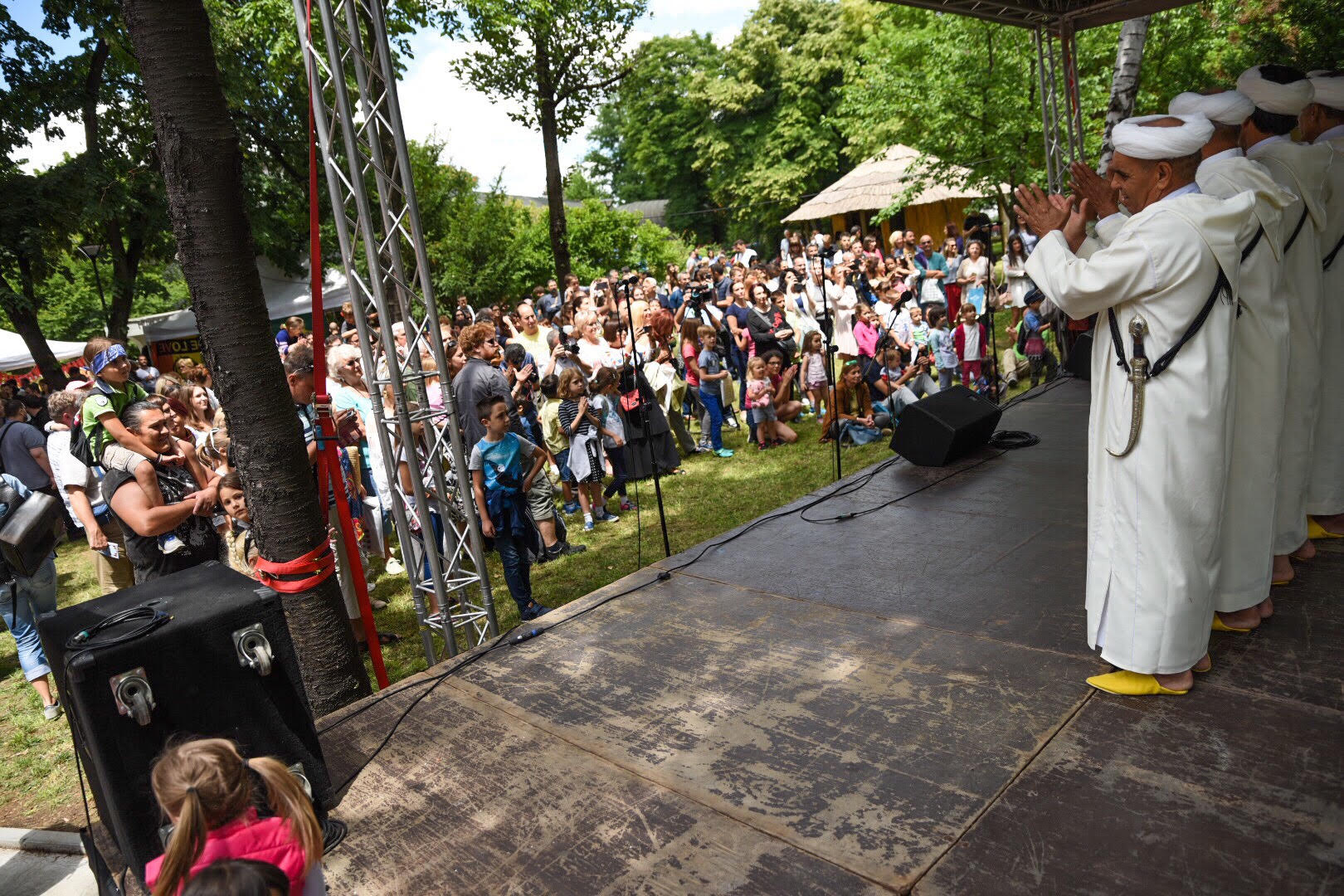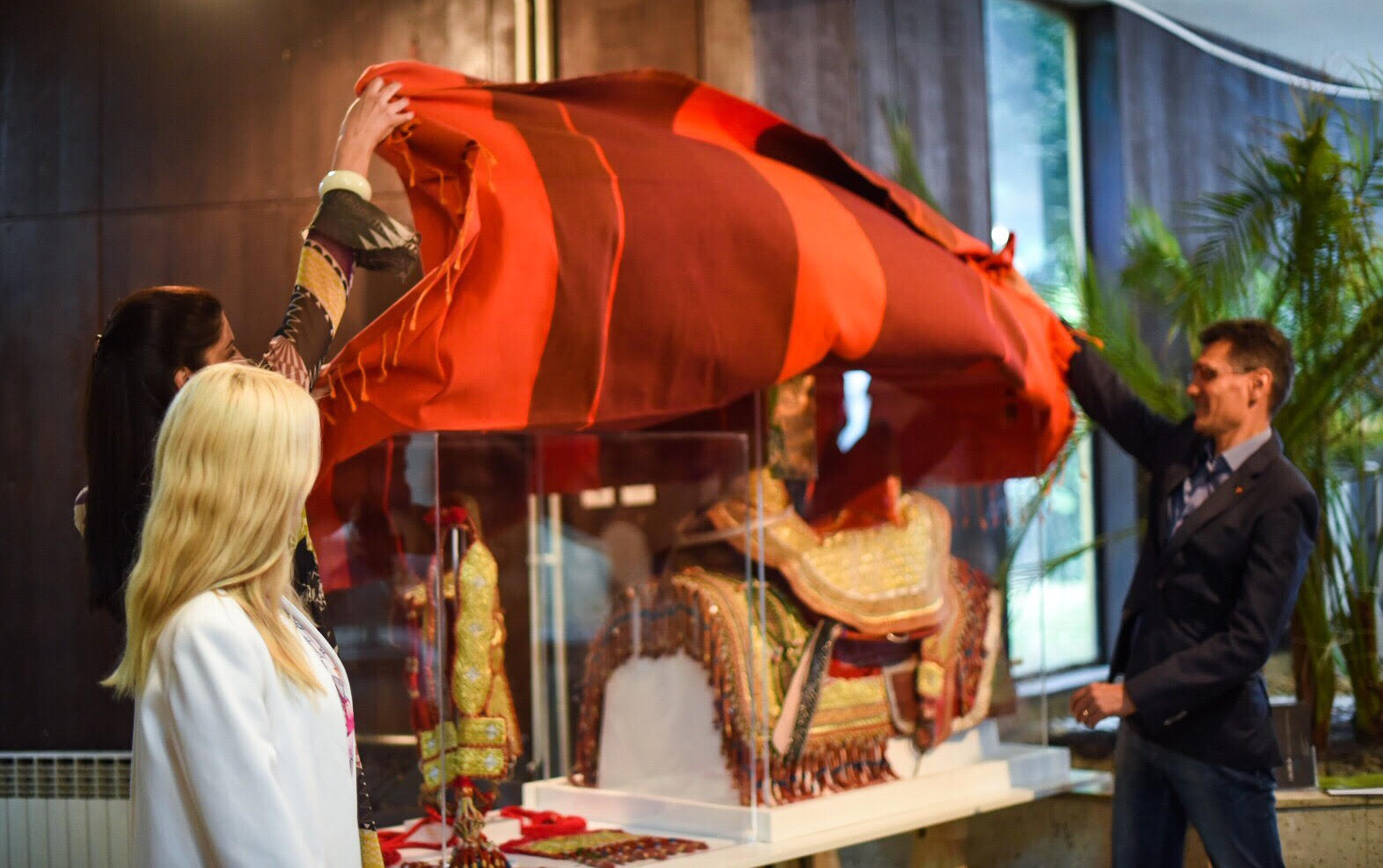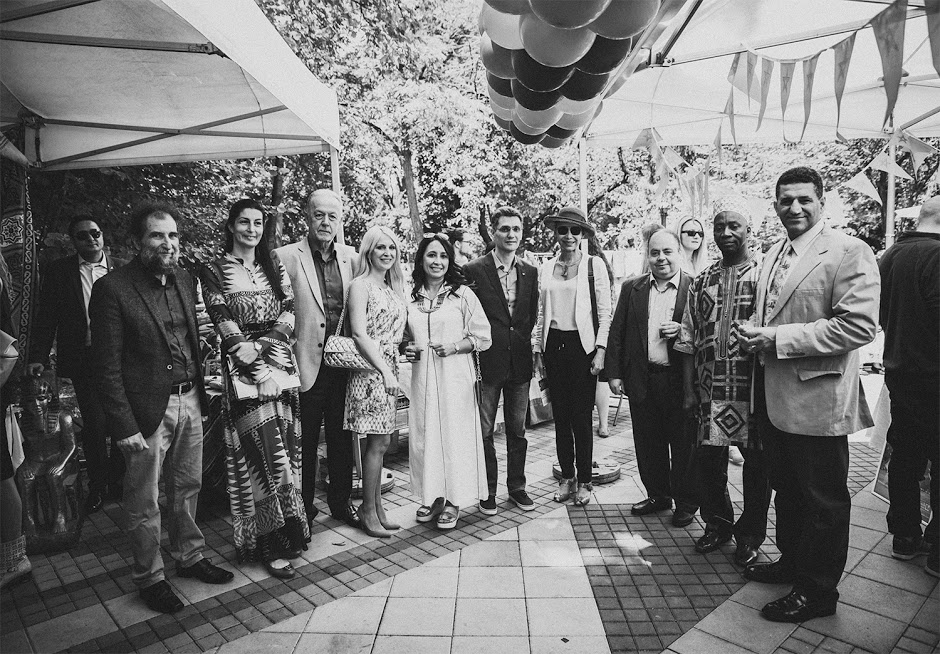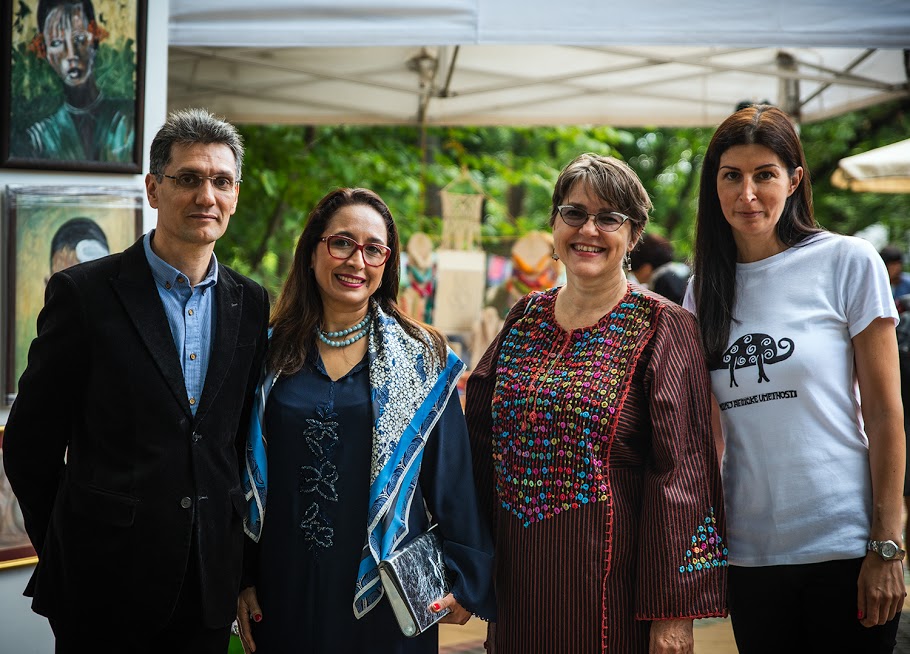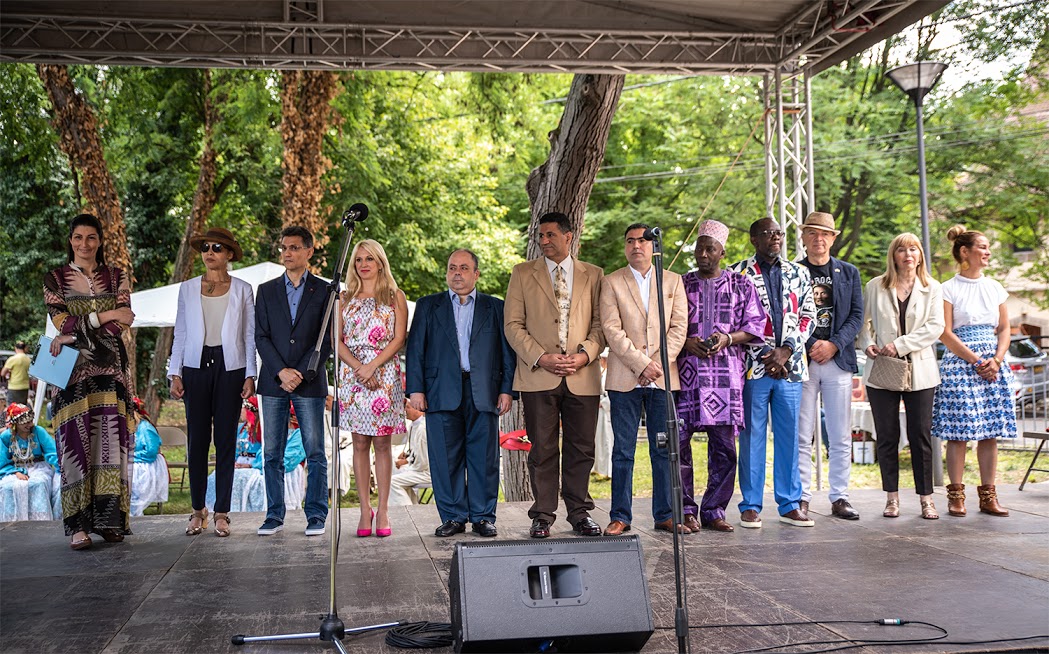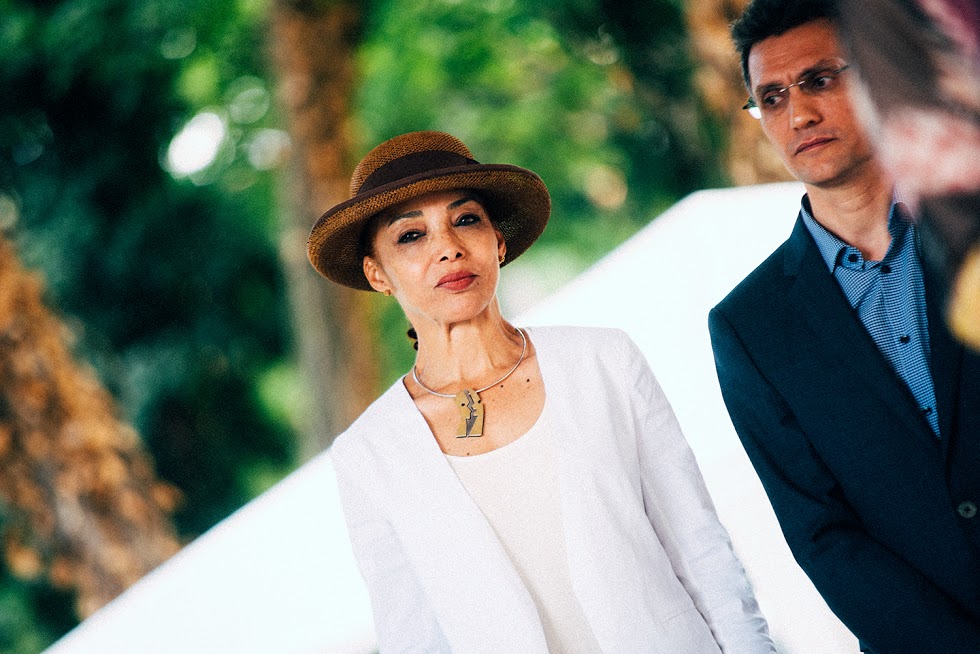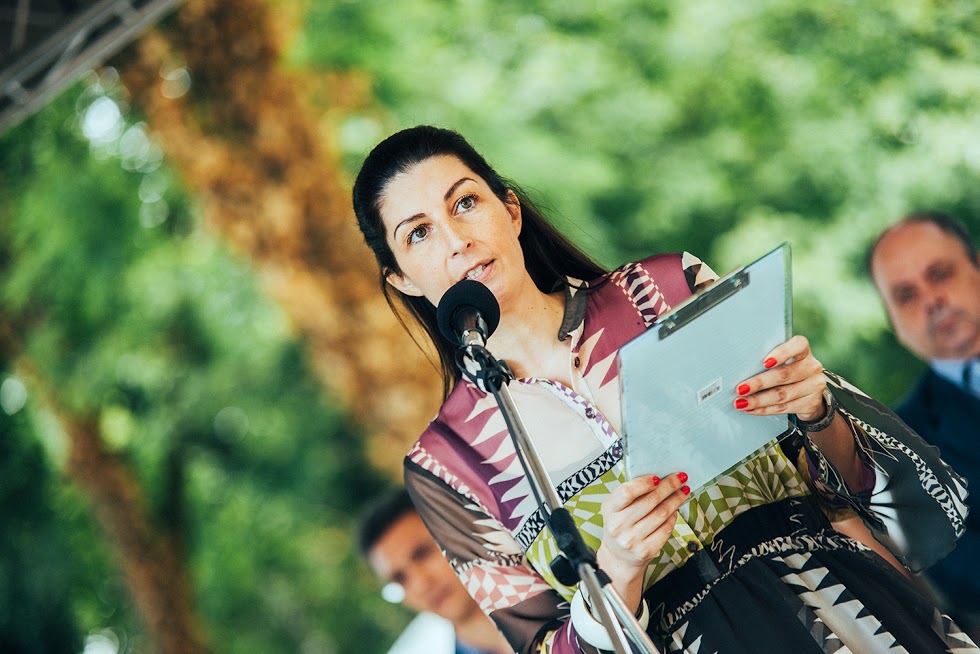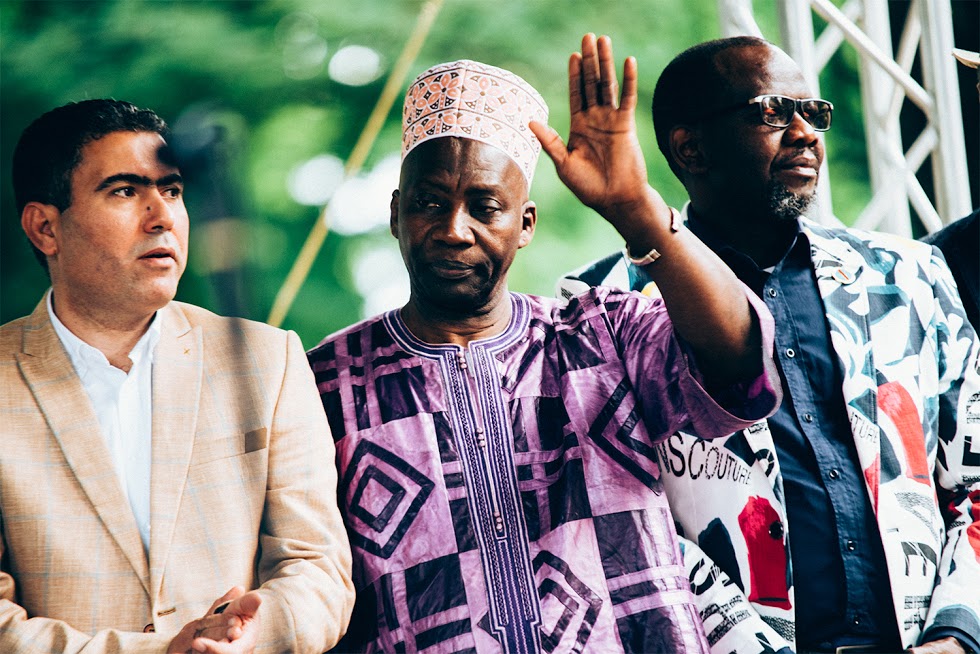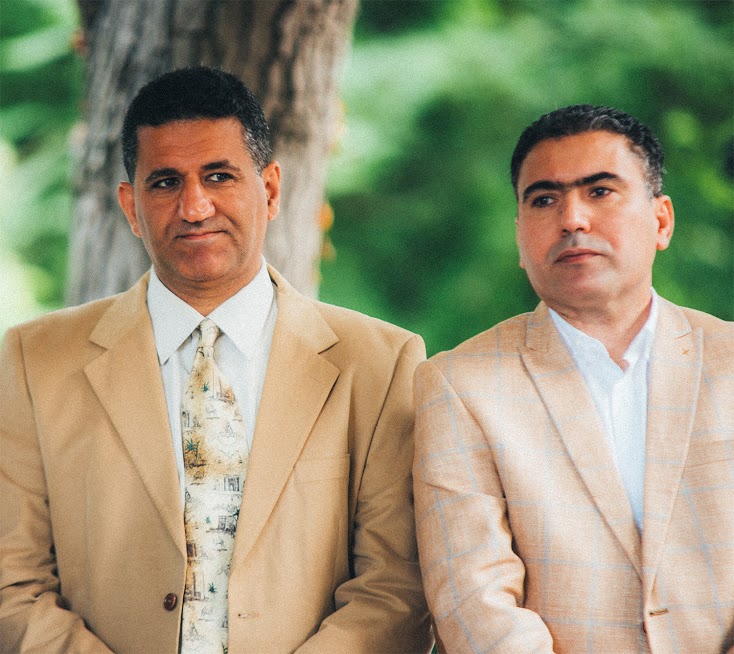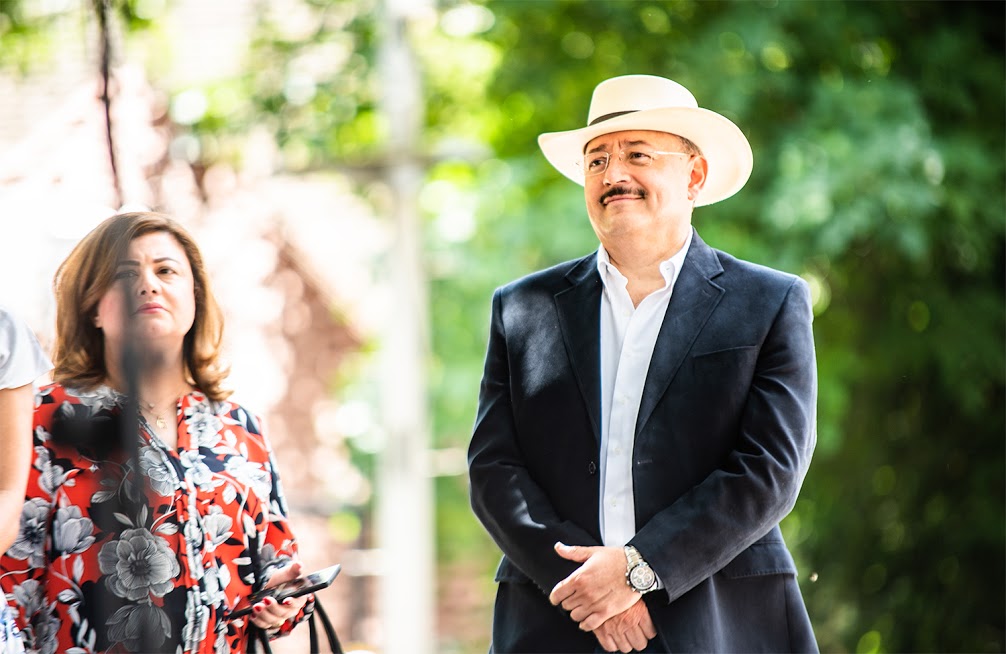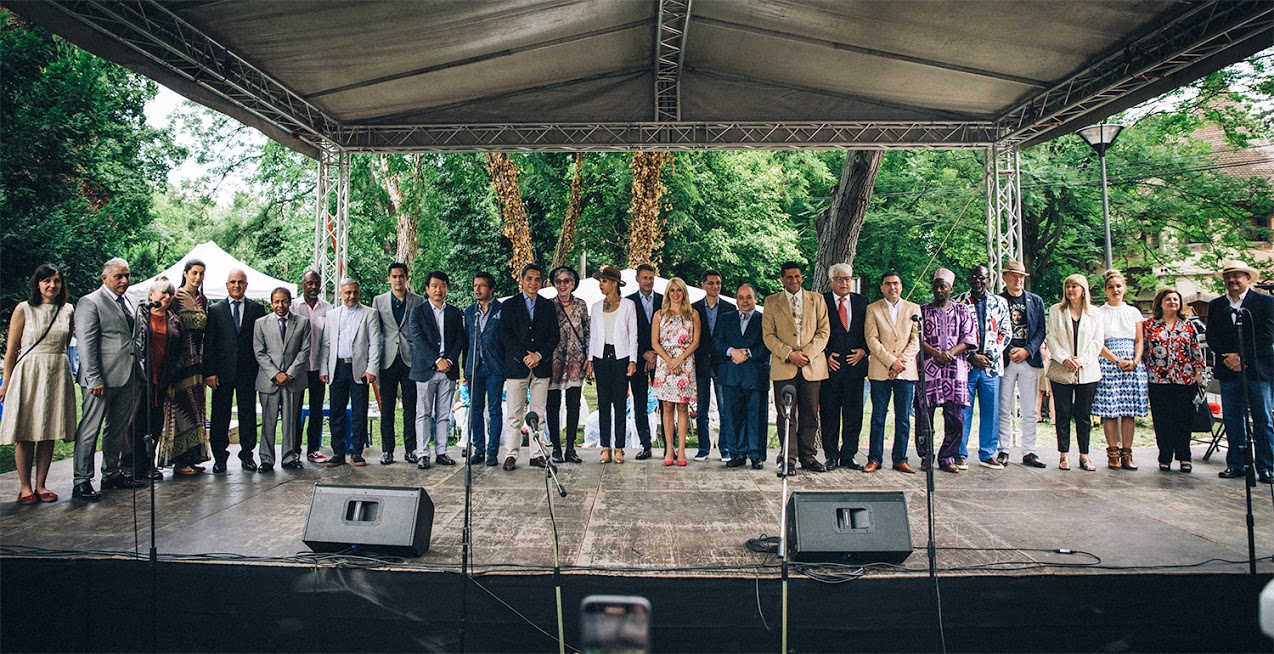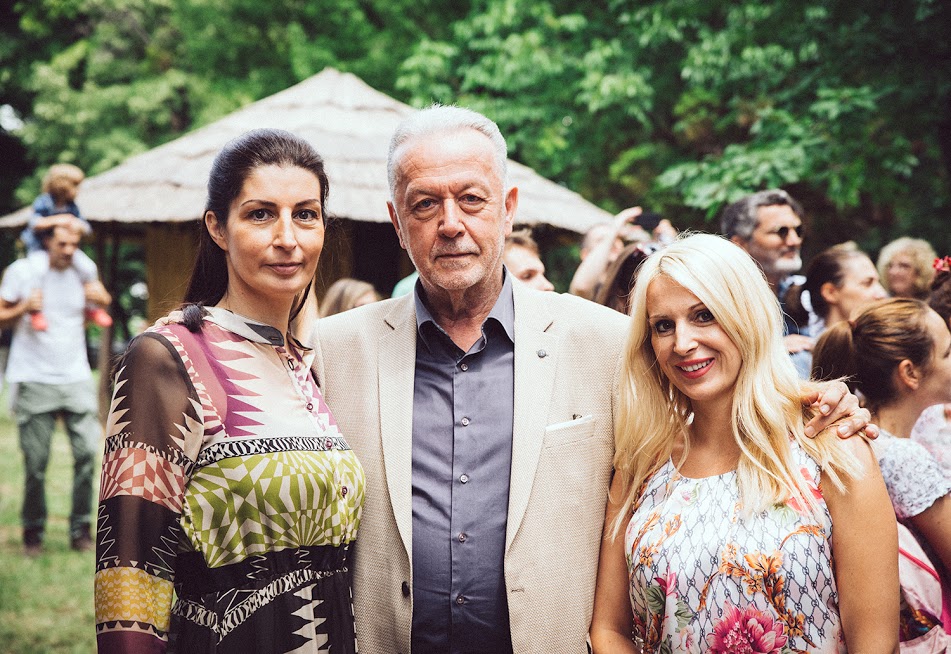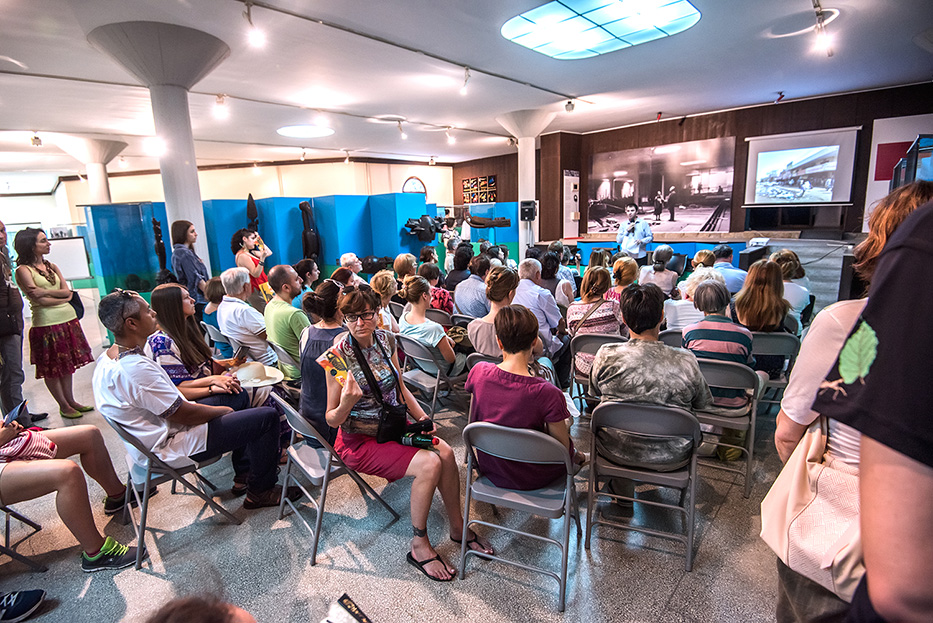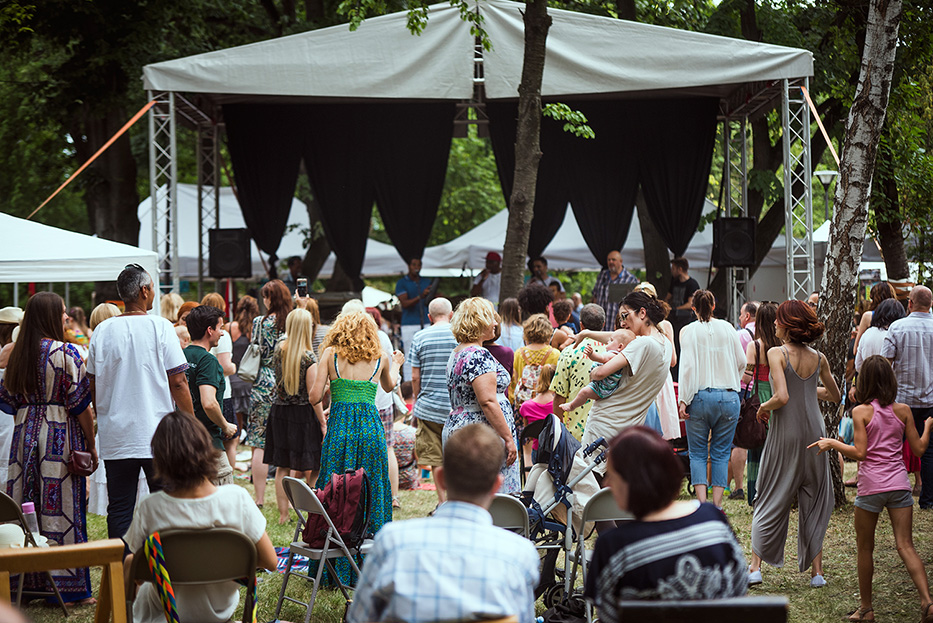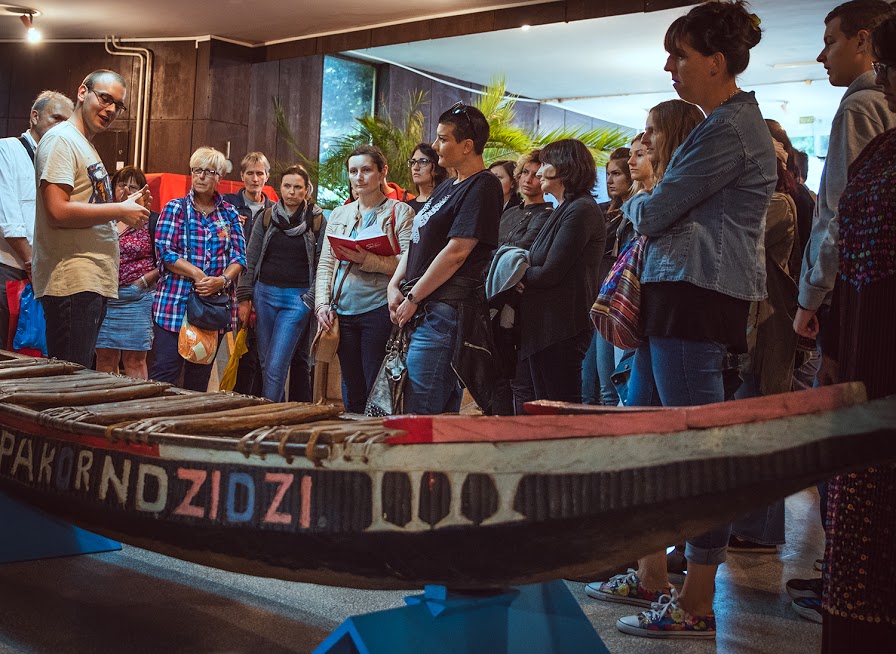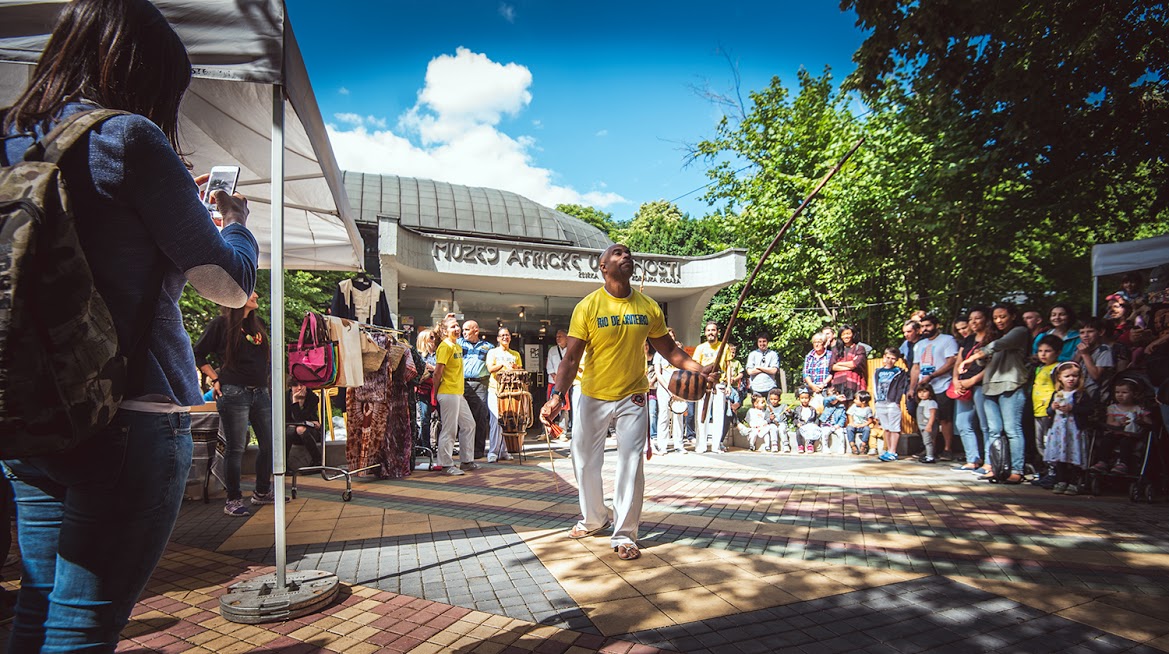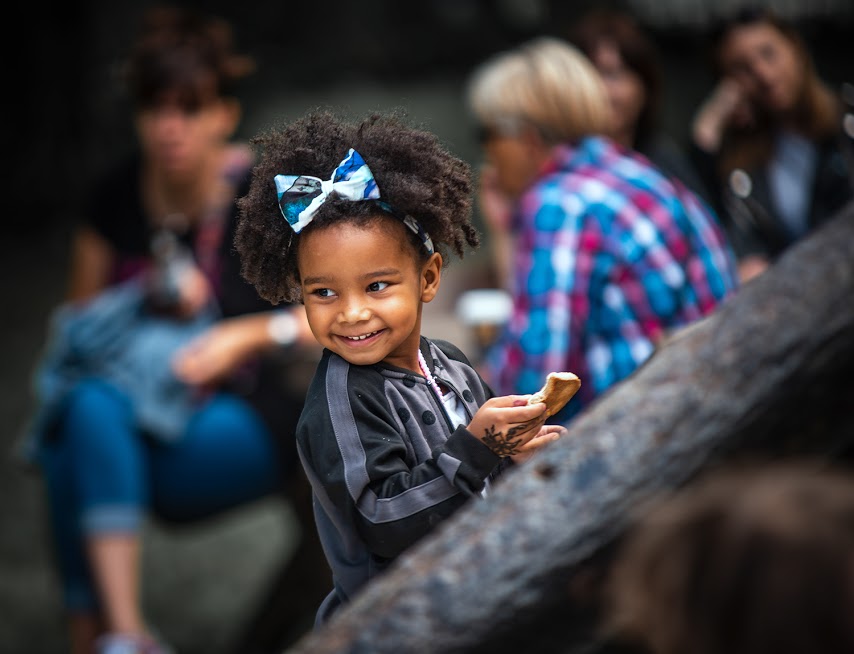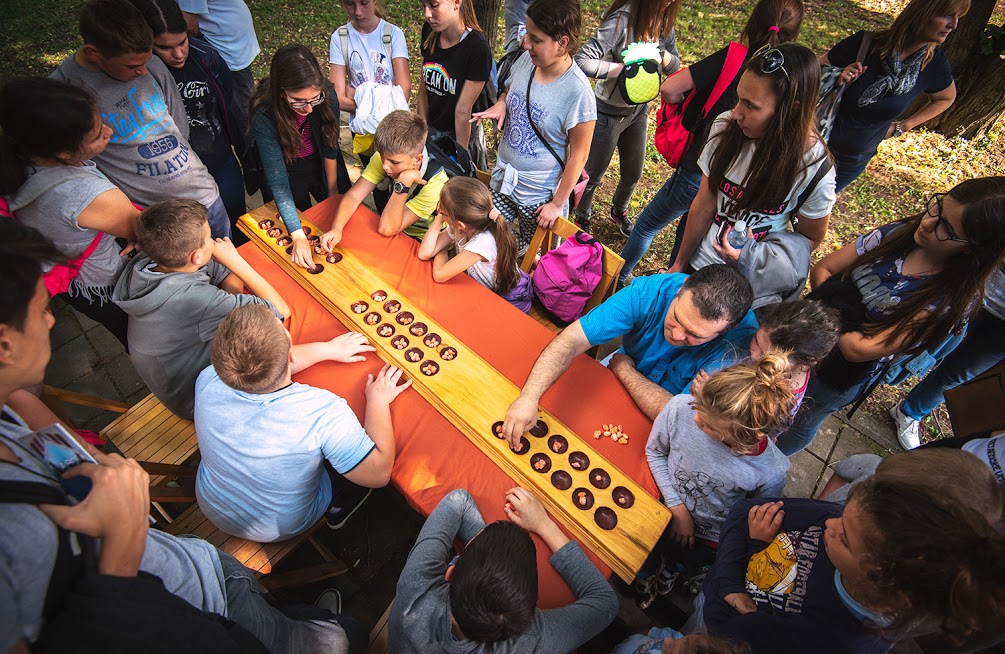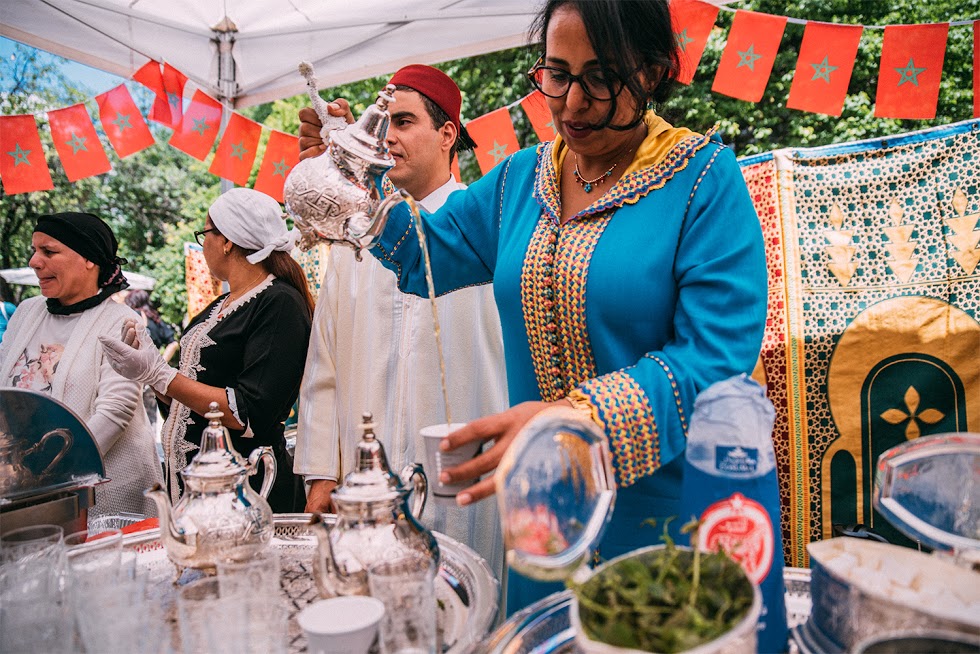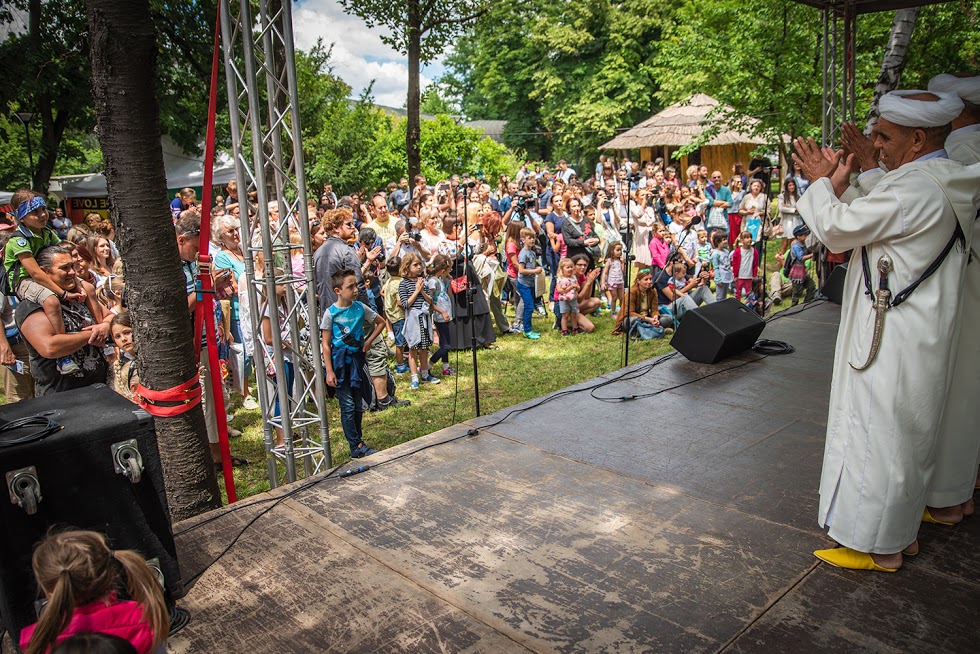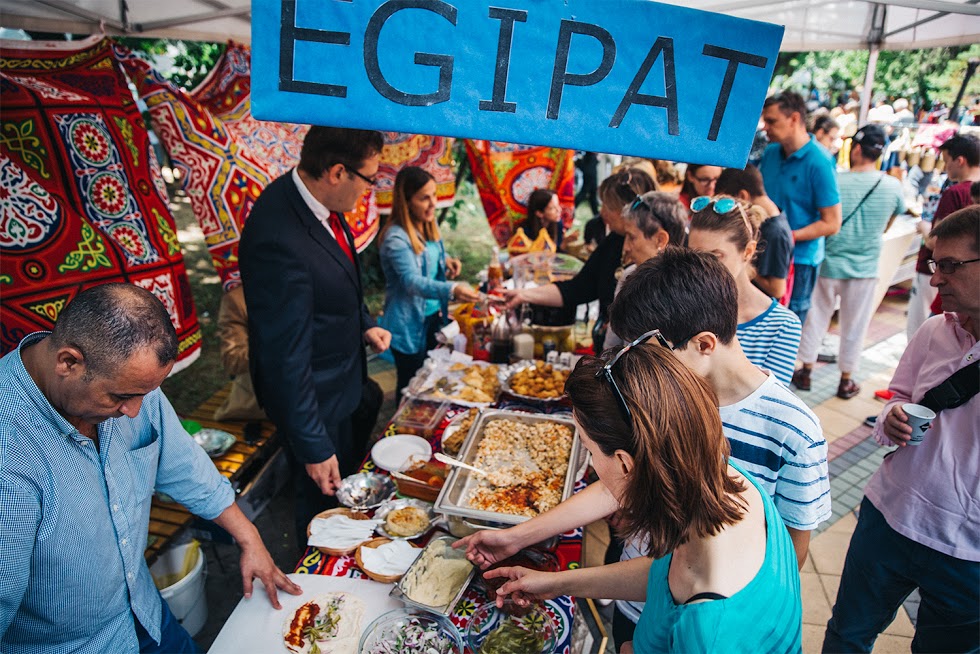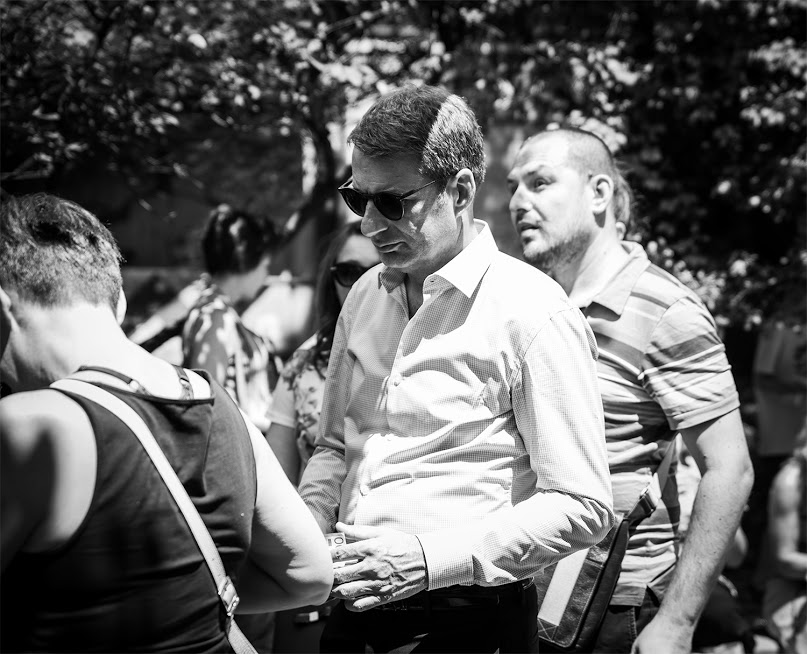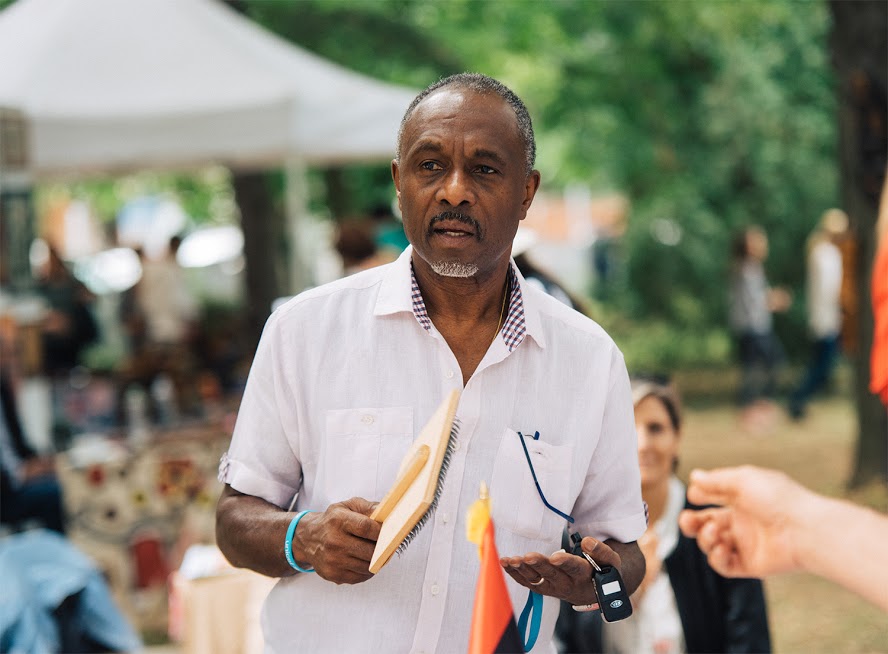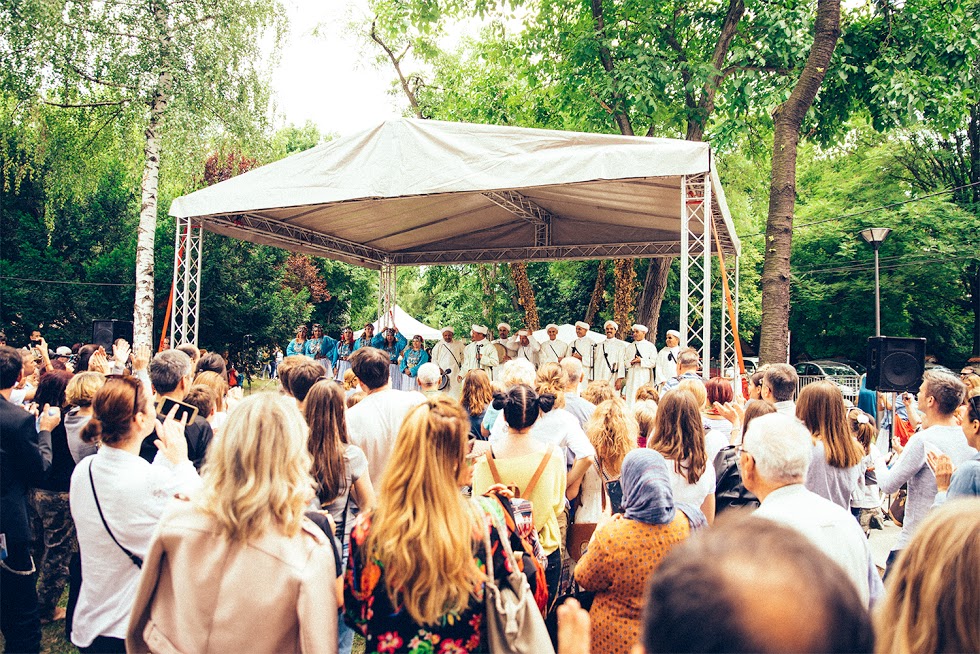The 21st Afro festival was held last weekend at the Museum of African Art. Over the course of two days, different events and activities celebrating African music, dance, arts and crafts, were held with the support of the African diplomatic community in Belgrade.
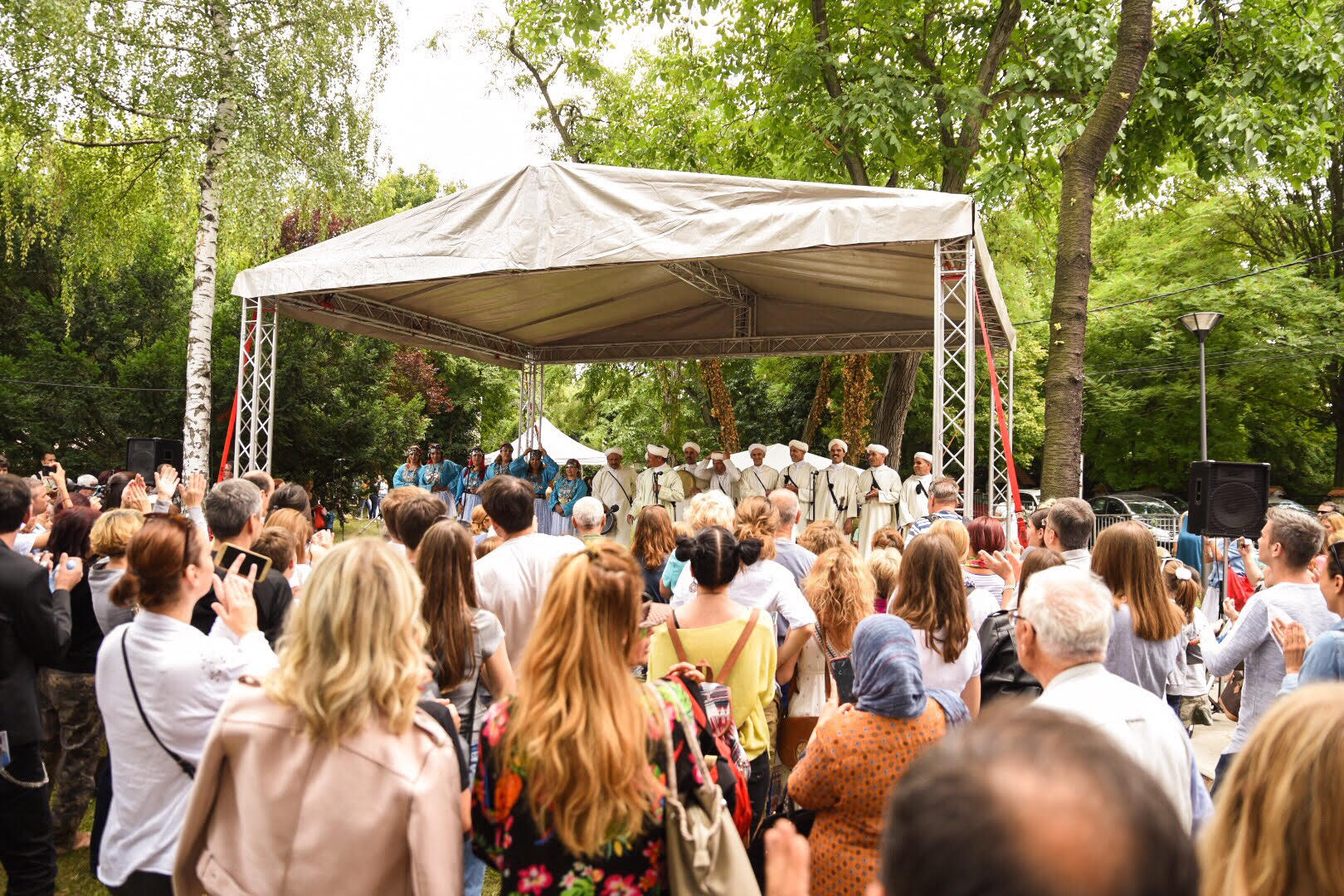
Specially arranged booths with handicrafts, textiles, jewelry, as well as culinary specialties were able to evoke to numerous visitors, the cultural repertory of Africa. The special guest of the Festival was the Kingdom of Morocco and the program that marked the event included a performance of the sixteen-member Ahwach folkloric troupe from the vicinity of Marrakesh who, adorned in striking gowns, presented traditional dances and songs of the Berbers.
The Festival was an opportunity for officials to address over 2000 visitors that gathered at the Museum that day, which included local officials, the media, members of the wider public, tourists, the African community in Belgrade, expatriates and, notably, the diplomatic crops: More than twenty Ambassadors, OEBS Chief of Mission, UNHCR commissioners, the Director of UNICEF and the City of Belgrade Secretary of Culture.
H. E. Ambassador Mohamed Amine Belhaj donated, on behalf of the Kingdom of Morocco, an extremely valuable exhibit to the museum – a traditional, hand-made, 80-year old saddle, underlining that the Museum of African Art – being the “House of Africa” in Belgrade – is the most fitting place for safeguarding such a valuable piece of Moroccan heritage.
Museum director Marija Aleksić (PhD) thanked the Ambassador on the donation which will offer an opportunity to future visitors and coming generations, to learn more about the rich material culture and immeasurable creativity that stems from Morocco.
The City of Belgrade Secretary of Culture, Ivona Jevtić, addressed visitors and the diplomatic corps at the official event opening as well, pointing out the importance of this unique cultural institution – the Museum of African Art, and event – Afro festival, and their role in the promotion of international cultural cooperation with countries of the African continent.
